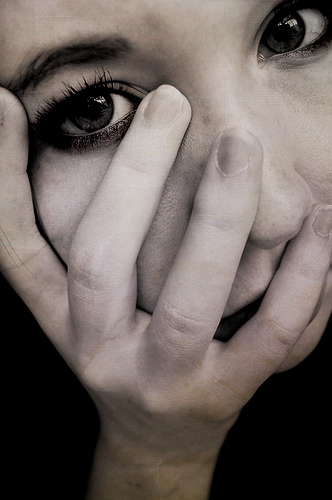I’ve never tried to block out the memories of the past, even though some are painful. – Sophia Loren

Hiding from yourself, it doesn’t really work, does it? Try to face your past, and learn something from it.
What does that mean?
This is another in a long line of Twitter-friendly shortened quotes. The full quote is: “I’ve never tried to block out the memories of the past, even though some are painful. I don’t understand people who hide from their past. Everything you live through helps to make you the person you are now.”
In the longer version of the quote, she states what she means. What we are now is a product of every experience, good or bad, we have ever had in our lives. This is a powerful statement. She is acknowledging both the good parts of her past as well as the painful parts, and the importance of not hiding from them.
In hiding from your past, you are trying to keep a portion of yourself hidden. You are minimizing or even despising a portion of yourself. This is you we are talking about. If you hide from your past, you are denying part of yourself, part of what made you who you are today.
Even bad experiences shape us. Even if something terrible happened, you don’t have to deny yourself. You can still acknowledge the pain and the hurt, but you don’t have to hide it from yourself. You can still learn something, you can still become a better person because of your experience.
Why is acknowledging your past important?
As the quote states, and as I truly believe, we are a product of the sum of all our experiences. We are the ones who assign value to and place labels on these events. Some events are assigned the label of ‘bad’ while others are labeled ‘good.’ Society and our other experiences may help us assign these labels, but ultimately it’s up to us.
Independently, each event is given value. Some are considered very valuable, and others are valueless. But some might be hidden away, blocked out of our consciousness. These are the events that the quote is talking about. Again, while society may consider some events more valuable than others, ultimately, the decision is ours.
Very rarely will that event have a “bad” label, while the value it is given will likely be fairly large (if it was small, you’d just forget it). This is what the quote is talking about. The acknowledgement of all of our past events allows us to be whole, to be and know why we are the way we are.
If you try to hide your past from yourself, you still have learned at least a little bit, and that will carry with you for the rest of your life. By not hiding events from yourself, you can figure out why you do some things, and not do others. You can even try to learn lessons from what lead up to the event, and not do them again. Does that make sense?
Where can I apply this in my life?
Since I know nothing about your life and what has or hasn’t happened, this is going to be a bit awkward. I would guess that most of us have events in our past that we aren’t too happy about, of which we are not proud. However, these aren’t the ones to which the quote is speaking.
The quote is talking about the ones we’re hiding, sometimes successfully, from ourselves. These are the things which are truly bothersome in some manner or form. Usually, we have buried these for a reason which sounded good at the time. Perhaps that time has passed or the reason is no longer valid.
I cannot stress strongly enough this warning: the time may not yet have passed, or the reason may still be valid. Looking within, searching for the events we have buried, you may stumble onto things that are not yet safe to unearth. Even if that is not the case, this search may not be pleasant, so be careful of moving too quickly. If things are truly painful, you might want to seek the assistance of a professional before digging that one up.
The basic quest is to seek buried events. Where I started the search in my life was by trying to find odd behaviors, and search to find what might be their underlying cause. By digging around, asking questions and then questioning those answers, you should be able to find something interesting about yourself, even if it isn’t a buried event.
As an example, many years ago, I noticed I had an unexpectedly strong aversion to personal physical violence. After digging, I realized that it was from an event that I had blocked from my mind. It was an event from 6th grade, when I ended up almost causing serious physical harm to another kid.
It wasn’t a happy moment, but it was part of me. It was part of my experience, and it what part of what shaped me, for better or worse, into the person I am today. I still dislike personal physical violence, but now that I understand it better, I can better understand myself.
Dig carefully, and probe carefully. But if you keep digging, you may find out a little more about yourself that you knew. Ask questions, then question the answers. Then learn from the experience, no matter how painful. It’s part of who you are.
From: Twitter, @LargerThanWords
confirmed at : http://www.brainyquote.com/quotes/quotes/s/sophialore135010.html
Photo by whatmegsaid
Happy Birthday wishes to Sophia Loren, born 20 September, 1934
